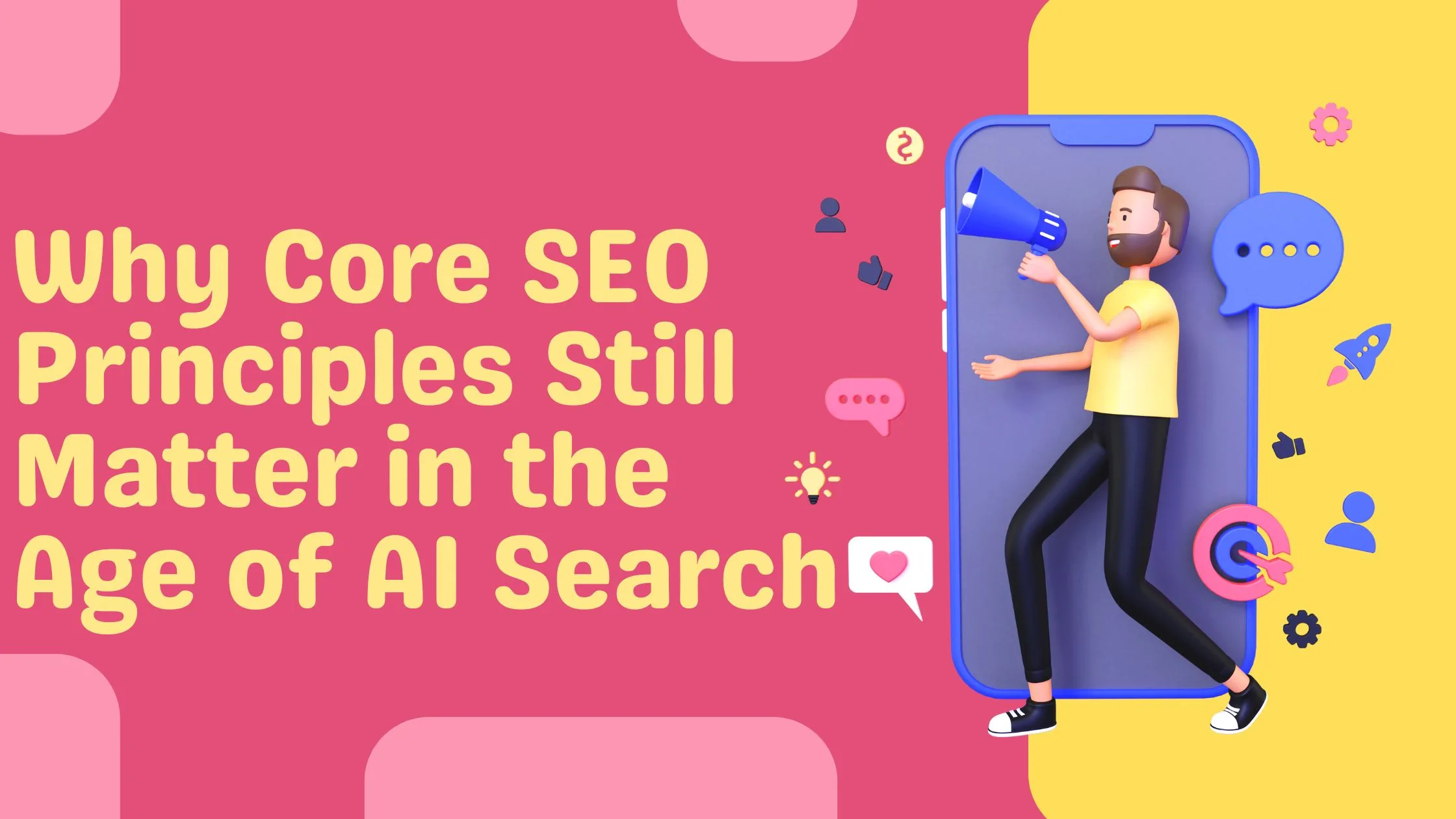Artificial intelligence has significantly changed how search engines function, shaping user behavior and redefining search engine optimization.
Marketers are increasingly adopting AI-focused SEO strategies — and with good reason. New technologies bring greater accuracy and speed, revolutionizing how people find and interact with information online. Yet, despite innovations like Google’s AI Overviews (previously called Search Generative Experience or SGE) and tools like OpenAI’s ChatGPT, the proven fundamentals of SEO remain the most dependable route to strong online visibility.
No matter how advanced AI-powered search becomes, the basics of SEO still serve as the backbone of discoverability.
Time-tested tactics such as keyword optimization, clear and logical site structures, and high-quality backlinks create the essential framework for AI-driven enhancements to work effectively. Without this solid base, even the most sophisticated AI optimization methods may fail to deliver the reach your business needs.
AI Search Optimization: What’s Different?
Modern search engines use AI capabilities like machine learning and natural language processing (NLP) to understand queries with unmatched precision. Unlike older systems that mostly matched keywords to searches, AI-driven search now considers context, user intent, and conversational language.
Key advancements brought by AI in SEO include:
- Contextual Understanding: AI evaluates the meaning behind a query, not just the keywords.
- Direct Answers: It delivers immediate responses, limiting the need to explore multiple links.
- Personalization: Results are tailored using past activity, preferences, and behavior.
- Content Summarization: AI condenses information into clear, concise answers, reducing the need for lengthy searches.
Why Core SEO Principles Still Matter in the Age of AI Search
The rise of AI in SEO is exciting, with constant changes reshaping the way optimization works. Yet, while AI search engine optimization is evolving, the proven fundamentals of SEO still guide how AI interprets and ranks your content.
Five Reasons to Keep the Basics in Focus
1. Crawling and Indexing Enable AI to Find Your Content
Search engines use crawling and indexing to locate, organize, and rank online pages. Even with AI, clearly indexed and well-structured sites remain essential for accurate interpretation of content. AI crawlers — like traditional bots — depend on simple navigation and clear architecture. Without it, your content may never appear in results.
2. Quality Content Powers AI Visibility
Google’s E-E-A-T (Experience, Expertise, Authoritativeness, Trustworthiness) framework highlights the need for original, accurate, and trustworthy content. Sites meeting these standards have seen ranking boosts, especially after major updates. High-quality content should include credible sources, genuine insights, and human oversight to maintain accuracy and trust.
3. Keyword Optimization Is Still Crucial
Keywords remain the backbone of SEO. While AI understands context and synonyms, aligning your content with the phrases people actually search for improves rankings. Covering related queries, including long-tail terms, keeps content relevant across a broader range of searches.
4. Backlinks Signal Authority to AI
Backlinks are still a major ranking factor. Pages with more high-quality referring domains generally rank higher. Links not only boost authority but also increase discoverability, helping your content escape the “invisible” zone where pages receive no traffic.
5. User Experience Shapes AI Rankings
Google values sites that load quickly, are mobile-friendly, and offer a smooth browsing experience. While UX may not outweigh content, keywords, or backlinks, it can act as a tiebreaker and enhance visibility in AI-generated results.
In short, while AI changes how search engines function, a strong foundation in SEO basics remains the key to lasting visibility.
Achieve AI Search SEO Success With Web Believers
Succeeding in the era of AI-powered SEO requires a strong grasp of the basics and the flexibility to adapt. While emerging technologies and AI-driven strategies are transforming search, the core principles of SEO remain the foundation for long-term visibility.
Overlooking essentials like keyword targeting, authoritative content, or quality backlinks can cause you to lose ranking positions, regardless of how advanced search engines become.
At Web Believers, we ensure you stay ahead by keeping pace with the latest updates and proven strategies. Our team uses data-backed insights to reinforce your SEO foundation, helping you safeguard your business against the constant shifts in search.
FAQs
1. Why do classic SEO principles still matter in AI-driven search?
Classic SEO practices, such as keyword optimization, structured site architecture, and quality backlinks, create the foundation that AI-powered search engines need to interpret, rank, and display your content effectively.
2. Isn’t AI smart enough to understand my content without SEO basics?
Even with advanced AI, search engines still rely on properly indexed pages, clear navigation, and optimized keywords to locate and assess content accurately. Without these fundamentals, AI may not discover or rank your pages.
3. How does AI change the way SEO works?
AI enhances search by analyzing context, user intent, and conversational phrasing instead of only matching exact keywords. However, these improvements build on existing SEO principles rather than replacing them.
4. Do keywords still matter in AI search optimization?
Yes. While AI understands synonyms and related phrases, using the exact terms and variations your audience searches for helps improve rankings and visibility, even in AI-generated search results.
5. Are backlinks still important for AI-powered search engines?
Absolutely. Backlinks remain a major ranking factor, signaling authority and credibility to both traditional algorithms and AI-driven search models.
6. What role does content quality play in AI search?
High-quality, accurate, and trustworthy content — following Google’s E-E-A-T guidelines — is more likely to be surfaced by AI in search results and summaries.
7. How can I prepare my SEO for the future of AI search?
Focus on maintaining strong SEO fundamentals, creating valuable content, building authority through backlinks, and staying informed about evolving AI search features.




